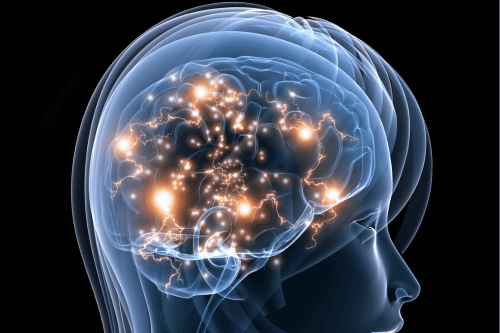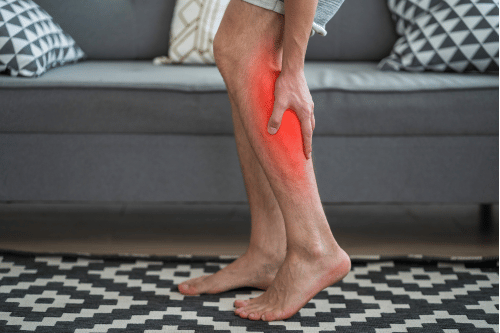Ativan Withdrawal Symptoms: What to Expect and How to Manage Them
Ativan, also known by its generic name lorazepam, is a potent benzodiazepine medication used to treat a variety of conditions such as anxiety disorders, sleep disturbances, seizure disorders, and alcohol withdrawal syndrome. As part of the benzodiazepine class, it affects the central nervous system by enhancing gamma-aminobutyric acid (GABA), which helps calm brain activity.
While effective in the short term, long-term use of Ativan can lead to physical dependence, even in those taking it under the direction of a qualified healthcare provider. When the drug is stopped, especially abruptly, many people experience the pains of withdrawal.
Tennessee Behavioral Health
Understanding Ativan and Its Uses
Ativan is classified as a short-acting benzodiazepine, which means its effects do not last as long as long-acting drugs like diazepam. It is often prescribed for acute anxiety symptoms, muscle tension, and as part of alcohol addiction treatment protocols. However, its abuse potential and potential for dependence make it a drug that must be closely monitored.
Individuals with mental disorders, alcohol dependence, or a history of substance use disorders may be at increased risk of developing a physiological dependence on Ativan. These risks often necessitate long-term planning and a structured approach to discontinuation.
What Causes Withdrawal?
Withdrawal effects occur when the brain, having adapted to the presence of Ativan, must adjust to functioning without it. Over time, the brain reduces its own GABA production, relying instead on the drug. This disruption of the nervous system causes the body to enter a hyper-excitable state when Ativan is removed.
Factors that influence the intensity of withdrawal symptoms include dosage, frequency, duration of use, and a person’s physiology. Sudden cessation or quitting without a tapering schedule can result in severe withdrawal symptoms.
Recognizing the Symptoms
Symptoms from benzodiazepines like Ativan can vary in severity and duration. These include:
- Physical symptoms: Muscle pain, abdominal cramps, rapid heart rate, elevated blood pressure, blurred vision, and loss of coordination
- Psychological symptoms: Severe anxiety, panic attacks, cognitive difficulties, rebound anxiety, and depression
- Sleep-related symptoms: Insomnia, vivid nightmares, and frequent awakenings
These symptoms may mirror or exceed the original condition being treated, such as treatment of anxiety or sleep disorders.
Early Withdrawal Symptoms
Initial symptoms often begin within 6–8 hours after the last dose. This period marks the beginning of the acute withdrawal phase, where acute symptoms may intensify quickly. Common early signs include:
- Heart palpitations
- Muscle weakness
- Sweating
- Nausea
- Cognitive issues such as confusion and memory lapses
These symptoms represent the body’s immediate reaction to the loss of a nervous system depressant.
Post-Acute Withdrawal Symptoms
After the acute phase, many individuals experience Post-Acute Withdrawal Syndrome (PAWS). This stage includes ongoing psychological withdrawal symptoms such as:
- Mood swings
- Sleep disturbances
- Rebound symptoms of anxiety and depression
- Fatigue and cognitive decline
These symptoms can persist for an extended period, often lasting weeks or even months, depending on the individual’s withdrawal experience and whether they receive medical attention.
Timeline of Ativan Withdrawal
Initial 24–72 Hours
The acute withdrawal symptoms typically appear during the first 1–3 days. During this time, individuals report muscle tension, abdominal discomfort, rapid heartbeat, and worsening anxiety symptoms. The acute stage can be particularly intense for those stopping high doses or long-term usage.
The First Week
Between days 4 to 7, symptoms may fluctuate. Some physical withdrawal symptoms may lessen, while psychological symptoms such as irritability and sleep disturbances persist.
This is also the time when rebound anxiety, memory issues, and depression can become more prominent. Medical monitoring is key during this period to manage any adverse reactions or medical complications.
Long-Term and Protracted Symptoms
Beyond the first week, individuals may still deal with protracted withdrawal symptoms, particularly those with co-occurring mental health disorders. These may include:
- Cognitive difficulties
- Memory loss
- Heightened sensitivity to stress
- Insomnia
- Psychological dependence symptoms
The prolonged stage can last for several weeks to months and may interfere with daily functioning without proper addiction treatment.
The Risks and Dangers of Withdrawal
Return of Psychiatric Symptoms
Stopping Ativan can lead to a resurgence of underlying issues such as severe anxiety, panic disorders, and depressive episodes. This rebound can be more intense than the original symptoms that led to Ativan use.
Risks Associated with Pregnancy
Pregnant individuals face increased potential complications during withdrawal. The U.S. Food and Drug Administration advises close coordination with a healthcare professional when modifying benzodiazepine use during pregnancy.
Potential Life-Threatening Complications
Severe cases of withdrawal can involve:
- Seizures
- Psychotic reactions
- Breathing difficulties
- Elevated body temperature
These dangerous symptoms require immediate medical attention and access to a medical detox center or inpatient treatment facility.
Tennessee Behavioral Health
Managing Withdrawal Safely
Importance of Medically Supervised Detox
Medical detox programs provide structured, safe environments for withdrawal. Medical professionals monitor vital signs, reduce the risk of medical emergencies, and may prescribe long-acting benzodiazepines to ease the process.
Tennessee Behavioral Health provides 24-hour admission coordination for those in need of urgent detox support.
Tapering Schedules and Their Role
A taper schedule is the most common approach to reduce the severity of withdrawal symptoms. It involves slowly lowering the dose of Ativan, often while introducing a longer-acting benzodiazepine like clonazepam.
This strategy gives the brain adequate time to restore natural GABA levels and reduces the severity of symptoms in the withdrawal timeline.
Coping Strategies for Withdrawal Symptoms
Psychological Support and Counseling
Behavioral therapy, particularly cognitive-behavioral therapy (CBT), helps patients manage psychological aspects of withdrawal. It teaches techniques for dealing with anxiety, mood instability, and stress management.
Therapy also helps to uncover and address the mental illness or substance use disorders that contributed to benzodiazepine dependence.
Lifestyle Adjustments
Integrating healthy routines plays a vital role in recovery. Key lifestyle strategies include:
- Regular exercise to reduce muscle tension and anxiety
- Relaxation techniques like deep breathing and mindfulness
- Avoiding stimulants that can trigger rebound symptoms
Getting quality sleep, staying hydrated, and using amino acids in nutrition may also support neurological recovery during the detox process.
Dependence vs. Addiction
Benzodiazepine drugs like Ativan can cause both physiological and psychological dependence. Dependence occurs when the body needs the drug to function normally. Addiction involves compulsive use despite negative consequences, often related to underlying psychological factors.
Understanding this distinction is important when creating a comprehensive treatment plan.
Long-Term Treatment Considerations
Personalized Treatment Plans
Long-term recovery from benzodiazepine withdrawal requires tailored care. A personalized treatment plan may include:
- Medical detox
- Behavioral therapy
- Non-pharmacological treatments
- Medication alternatives to benzo drugs
Tennessee Behavioral Health offers these services to support both physical and emotional healing.
Seeking Professional Help
Accessing a reputable treatment center ensures effective care during every phase of the recovery journey. Our programs address co-occurring mental health disorders, provide support during post-acute withdrawal, and include outpatient rehab options for those transitioning out of inpatient care.
Identifying Reliable Resources
If you’re unsure where to start, the National Helpline and the Mental Health Services Administration provide free referrals to rehab centers across the country. We also help patients navigate insurance plans and offer addiction helpline services for immediate assistance.
Exploring Alternative Medications and Therapies
Alternative medications, such as non-benzodiazepine anxiolytics or antidepressants, may be useful in treating residual symptoms of anxiety after withdrawal. These alternatives reduce the potential for abuse and support long-term treatment goals.
Begin Your Recovery with Tennessee Behavioral Health
Withdrawing from Ativan is a challenging process, but it is not one you need to face alone. The withdrawal effects, from acute lorazepam withdrawal symptoms to protracted withdrawal symptoms, can be safely managed under the care of compassionate professionals.
At Tennessee Behavioral Health, we specialize in addiction treatment programs for benzodiazepine medications. We provide medically-assisted detox, behavioral therapy, and comprehensive treatment plans for people ready to reclaim control of their lives.
Contact us today to learn how we can support you during this important step toward recovery.

Tennessee Behavioral Health
FAQ's
Yes, withdrawal symptoms may occur even after 1–2 weeks of regular use, especially at high doses.
While symptoms can’t always be avoided, tapering under medical supervision reduces severity and risks.
Some supplements may offer minor relief, but they should never replace medical detox or professional care.
Not exactly. While similar, the withdrawal intensity varies depending on whether it’s a short- or long-acting benzodiazepine.







